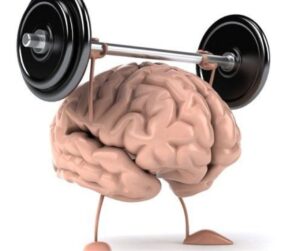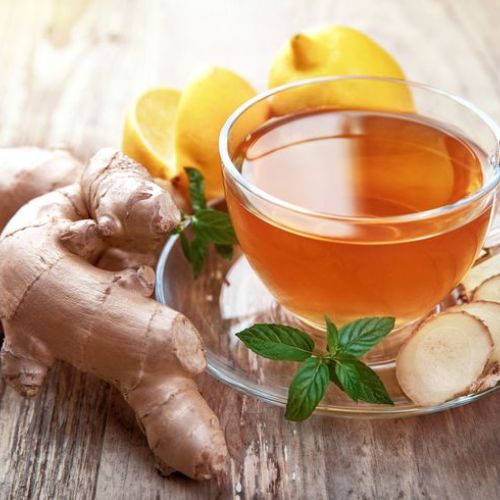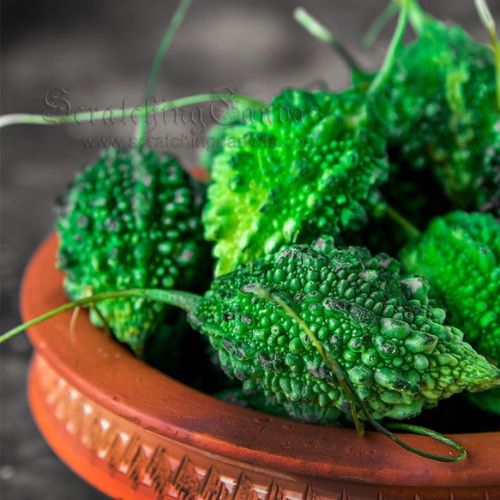Introduction
Ginger, plant with a rich hsitory dating back thousands of years, is reowned for it’s duel role in both cullinary and medicinal contexts. Histrical, it has been a staple in various traditional medicine systems, valued for it’s therapeutic properties. Interms of nutrition, Ginger is a powerhouse packed with essential Vitamin and minerals.
It is particularly noted for its high levels of Vitamin C, Magnesium and Other beneficial compounds. This nutritional profile contributes to it’s wide range of health benefits, making it a versatile and invaluable ingredient in both the kitchen and medicine cabinet.
Explore Top 13 Powerpack Health Benefits of Ginger Tea
01) Blood Sugar Regulation:

Research indicates ginger’s potential in regulating blood sugar levels. A study published in the ”Journal oof Ethenic Foods” demonstrated that ginger supplementation significantly improved blood sugar control in individuals with type 2 diabetes. The recommended dosage for blood sugar regulation is about 1-2 grams of ginger powder per day.
However, it’s crucial for individuals, especially those with diabetes or pre-diabetes, to consult with a healthcare provider before using ginger for blood sugar management, to ensure it is a safe and effective in conjunction with their overall treatment plan.
02) Anti-inflammatory Properties:
Ginger’s anti-inflammatory properties have been substantiated in various studies. For eg: research published in the ”Journal of medicinal Food” Suggests that ginger suppresses pro-inflammatory compounds produced in the body like cytokines and Chemokines.
This makes it beneficial for conditions like Arthritis and Muscular discomfort. The typically around 2-3 grams of ginger extract daily, divided into multiple doses. It’s essential to consult a healthcare provider for personalized dosage advices, particularly for long-term use or if you have existing health condition.
03) Menstrual Cramp Alleviation:

Ginger has been recognised for it’s role in alleviating menstrual cramps. A study in the ”Journal of alternative and complementary medicine” found that ginger can be as effective as Ibuprofen in reducing menstrual pain.
The recommended dosage for menstrual cramp relief is typically around 500-1000 mg of Ginger powder, taken at the onset of menstrual symptoms and continued for the first 3-4 days of the menstrual cycle. However, it is important to consult with a health care provider before starting any new treatment, especially for those with menstrual disorders.
04) Digestive Health:

Ginger aids digestion by stimulating saliva flow and bile production, enhancing the motility of the Gastrointestinal tract. This is attributed to gingerol, the active component in ginger, which helps in the digestion of food and alleviates discomfort associated with gastrointestinal distress.
Studies have shown that ginger can effectively calm an upset stomach, reduce feeling of bloating and promotes the ripid and efficient movement of food and waste through the digestive system. These properties make ginger a valuable natural remedy for improving digestive health. For digestive health, a common recommendation is consume between 1 and 3 grams of ginger per day. This dosage can be adjusted based on individual tolerance and specific digestive issues.
It’s important to start with a lower amount and gradually increase it. Fresh ginger root, ginger tea, or ginger supplement can be used but the form and concentration may effect the dosage. Always consult with a healthcare provider before beginning any new supplements especially if you have existing health condition or are taking other medication.
05) Muscle And Joints Discomfort Relief:

Studies such as those published in the ”Journal of Pain” have shown ginger’s effectiveness is reducing muscle and joint discomfort, attributing these benefits to it’s analgesic and anti-inflammatory properties for pain relief, the recommended dosage of ginger is typically around 2 grams per day, either in divided doses or as a single dose.
It’s important to consult with a healthcare professional for personalized advice, especially if you are considering using ginger for chronic pain condition or alongside other medication.
06) Memory Enhancement:

Studies, including those published in journals like ”Evidence based complementary and alternative medicine” have explored ginger’s potential cognitive benefits. These studies suggest ginger may enhance memory and cognitive function, possibly due to it’s anti-oxidants and anti-inflammatory properties. For cognitive health, a recommended dosage is around 400-800 mg of ginger extract daily.
07) Infection Fighting Properties:
Ginger is known for it’s anti-microbial effects, as highlighted in several studies. Research in the ”Journal of Ethnopharmacology” demonstrated ginger’s ability to fight various type of bacteria and fungi. This is attributed to it’s compounds like Gingerol and shogaol.
For infections fighting purposes, a general guideline is to consume 2-4 grams of fresh ginger or it’s equivalent in other forum daily. However, it is important to consult with a healthcare provider before using ginger as an anti-microbial agents, especially for specific infection or alongside other treatment.
08) Nausea Relief:

Ginger’s effectiveness against nausea is well-documented in various studies. For instance, a study published in the ”Journal of Ethnopharmacology” found that ginger significantly reduced nausea and vomiting in pregnant women. Another study in the ”supportive care in cancer; Journal demonstrated ginger’s efficiency in reducing chemotheraphy induced nausea.
These studies attributes ginger’s anti-nausea effects to compound like Gingerol, which help regulate digestive functions and suppress Nausea triggers in the brain. This evidence highlights ginger’s potential as a natural and effective remedy for various forms of Nausea. For nausea relief, the recommended dosage of ginger varies based on the forms of fresh ginger roots daily. In the case of pregnancy related nausea, It is advised to limit the intake of 1 gram per day.
It’s important to start with a lower dose and gradually increase it to assess tolerance. Ginger should be used cautiously and not exceed these recommended amounts with consulting a healthcare provider. Always check with a healthcare professionals before starting any new supplement regimen.
09) Cardiovascular Diseases Prevention:

Ginger is beneficial for heart health, as studies suggest that it may lower cholesterol levels and improves blood circulations. These properties can reduce the risk of Cardiovasular diseases. The recommended dosage for cardiovascular benefits is typically 1-2 grams of ginger powder daily.
However, individuals with heart condition or those on medications should consult a healthcare provider before incorporating ginger into their regimen to ensure it aligns safety with their health needs and treatment plans.
10) Pain Relief:
Ginger tea can provide you the same effect a COX-2 inhibitor pain relief drugs but without any side-effects. Gingerol, Shogaol and Paradol, these three active compounds in ginger, give it anti-inflammatory properties and help to reduce swelling and pain. Chronic pain in arthritis makes everyday life difficult drinking ginger tea can also reduce the pain associated with arthritis.
A study done by the Tehran university of medical science indicates that adding ginger to a diet can reduce the manifestation of rhumatoid arthritis. Excessive induced muscle injury is common in fitness enthusiasts drinking ginger tea can reduced the pain from muscle injury without giving you any extra calories.
11) Alzheimer’s diseases:
It is a brain disorder that affects your memory and thinking ability and is common in old age. One of the reason for Alzheimer’s is brain inflammation and damage caused by oxidative stress. The anti-inflammatory and anti-oxidative properties of ginger tea can protect your brain from such disorder. A study published in the journal of Biomolecular stracture and dynamics states the positive effects of ginger components for alzheimer’s prevention.
12) Boost Nutrients absorption:
It may never have crossed your mind, but when you eat, body does not absorb 100% of all nutrients. Poor gut health and microbiome imbalance can further reduced the nutrient-absorbing capability of the body. According to a study published in the journal of food science, ginger can act as a prebiotic and promotes beneficial bacteria growth plus it protects your gut from free radicals and inflammation. So having a cup of ginger tea can give your body more nutrients from the food you already eat.
13) Recent Studies:
Recent studies have uncovered additional health benefits of ginger. For instance, it’s potential in enhancing immune function and reducing the risk of certain cancers has been explored ginger’s anti-oxidants may plays a role in preventing cellular damage and inflammation, contributing to it’s cancer fighting properties. Another area of interest is ginger’s effects on respiratory conditions due to anti-inflammatory properties. These emerging benefits underscore ginger’s multifaceted role in health and wellness. However, further research is needed to fully understand and validate these benefits.
Usage of Ginger: Ginger can be incorporated into daily life in various forms;
Tea: Ginger tea is a popular way to enjoy it’s benefits. Simply steep sliced fresh ginger in hot water.
Cooking: Fresh ginger can be used in stir fried soups and marinades.
powder: Ginger powder is convenient for baking and seasoning dishes.
Crystalized Ginger: This form is a sweet treat and can be eaten alone or used in desserts.
Supplements: Capsules or tablets offers a concentration dose.
Essential oils: Used in aromatheraphy for it’s soothing properties. For powdered ginger, a small about is often sufficient to flavor dishes. Over use can overpower other flavors. A simple ginger tea recipe involves simmering slices of fresh ginger in water for 10-15 minutes, then straining and optionally adding honey or lemon for flavor.
Potential Side-effects and Risk:
-Excessive consumption of ginger can lead to adverse effects like heartburn, diarrhea and mouth irritation.
-Individuals with high blood pressure should use ginger cautiously, as it can affect blood pressure levels.
-Those with Gallstones must also be careful, as ginger can increases bile production.
-Pregnant women are advised to limit ginger intake and consult their healthcare provider before use, to avoid any potential risk of their pregnancy.
Also Read Our Related Articles:
01) 20 Scientifically Proven Flax Seeds Benefits -2024 Skin, Hair, Female And Male Health
02) 21 Powerpack Health Benefits Of Curry Leaves | What Exactly Happens To Your Body?
03) 15 Amazing And Powerful Health Benefits Of Cauliflower-2024
05) What Exactly Cabbage Does To Your Body? Here Are 18 Health Benefits Of Cabbage 2024
07) This Is What Meditation Does To Your Body And Mind? 25 Incredible Benefits Of Meditation- 2024
09) What Are The Benefits Of Eating Broccoli? Here Are Wonderful 16 Benefits Of Eating Broccoli-2024
10) 18 Benefits Of Eating Banana Everyday -What Exactly Happens To Your Body-2024
12) What Are The Health Benefits Of Tomato | 22 Incredible Health Benefits Of Tomato -2024
13) 16 Benefits Of Eating Pistachios On A Daily Basis-What Exactly Happen To Your Body-2024
14) Reason To Eat Sweet Potatoes Daily | 23 Best Health Benefits Of Sweet Potatoes
15) 14 Health Benefits Of Drinking Warm Water In The Morning
16) what are the health benefits of watermelon | Here are16 wonderful benefits of watermelon
17) what are the health benefits of eating radishes? Here are17 benefits of Radish
18) 19 Proven Health benefits of Pumpkin Seeds 2024
19) 17 Amazing Health benefits of turmeric milk-HALDI DOODH
21) 15 Amazing and Incredible Health Benefits of Cycling
22) 11 Unbelievable and amazing benefits of wheatgrass juice |for Thick hair, Glowing skin and more
23) 10 Proven Health Benefits of Eating Papaya 2024
24) 16 Incredible Health Benefits of Sesame Seeds -2024-Reason Why you should add this to your diet
25) 15 Most Incredible and Proven Health Benefits of Green Tea -2024
26) 21 Wonderful and Proven Health Benefits of Onion-2024 Hair, skin, bones, health etc




